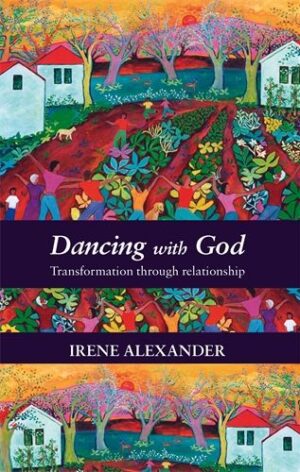



I grew up in a Christian family and even though I was naughty and disobedient at times, I remember wanting to be good. I saw myself as a good little girl and, to be honest, a part of me still is that good Christian girl. However I now see that there is a trap in this way of being. How do I know I’m “good” enough? I need to compare myself with others, or compare myself with some standard, especially for Christians, the Bible. This chapter talks about the evaluation paradigm – that constant monitoring that goes on in my head checking whether I am better than others, asking if I am good enough. As you look at these first two pages of the chapter see if you can find the evaluation paradigm having an effect in you. What happens when you meet a new person, hear of a news event, watch a new program – is there a part of you that is evaluating, measuring, checking, even, whether you measure up in some way?
It has been suggested that the tree of the knowledge of good and evil is a representation of this evaluation paradigm – the belief that I can, in myself, know what is good enough, and be righteous as “the gods” are. This is the trap of the pharisees, those who set up legalistic standards and demand that everyone obey them so we can see who is good and who is evil, who is in and who is out. But humans are God-designed to rely on God, to live in responsiveness to his love and acceptance.
Take some time to reflect on how your family or school or church may have implied that there were particular standards of behaviour which made you acceptable. And conversely are there behaviours or attitudes or actions that set you outside what is acceptable, which label you as not measuring up. Share something of your memories with the group.
Can you identify with the description of the loving parent always eager to encourage their toddler in their first attempt at walking, at talking? What were you like as a parent, or aunt or uncle, at delighting in these beginning attempts of a little one? As a grandparent I have new opportunities to notice my own heart response to little ones learning, to older ones experimenting; and so again can be reminded of God’s heart as a loving parent to me. Notice whether these images work for you as reminders of a God who delights in you. And whether they do or not, reflect too, on whether you can identify with the experience of a lover, one who knows themselves loved and delighted in just because they exist.
Talk with the group about your view of God as one who loves as intimately and consistently as a parent, as a lover.
Genesis 2 talks of Adam and Eve being naked and not ashamed. Here is a picture of what God invites us to – being seen for who we are with all our imperfections, and being loved anyway. Spend some time with this invitation to be real, authentic, ourselves – and loved. Is this your experience of your relationships, more specifically of church.
How might you, and your group work towards creating a context where conspicuous imperfection is possible?
What happens for you as you reflect on this description of God’s law being like the law of gravity (page 40), an explanation of the way the world is? Does it make sense for you to imagine the law as a temporary measure, until the “fulness of time came” and Jesus came to receive us into adoption as sons (Galatians 4:5).
Discuss your sense of adoption as opposed to being under the law.
Chapter 7 illustrates the teaching of chapter 6 by exploring Paul’s life. There is much in the New Testament about Paul’s life but it is in pieces, like a jigsaw puzzle. Chapter 7 is my attempt at putting the jigsaw puzzle together. As you read it notice if there is anything new you hadn’t understood about Paul. Notice his passion for the new covenant, for living in a love relationship with God rather than measuring up to the standards of the law. Seeing Paul with these eyes has brought me to love and respect Paul and I am saddened at how some people have come to see him as judgemental and misogynist. He is, in my opinion inviting us to freedom in a way the other disciples hardly articulated.
Share with your group what you have learned about Paul as you have read these chapters, and what you would like to say to him if you were to meet him, or what questions you would like to ask? You could try and answer each other’s questions from what you know of Paul from his writing.